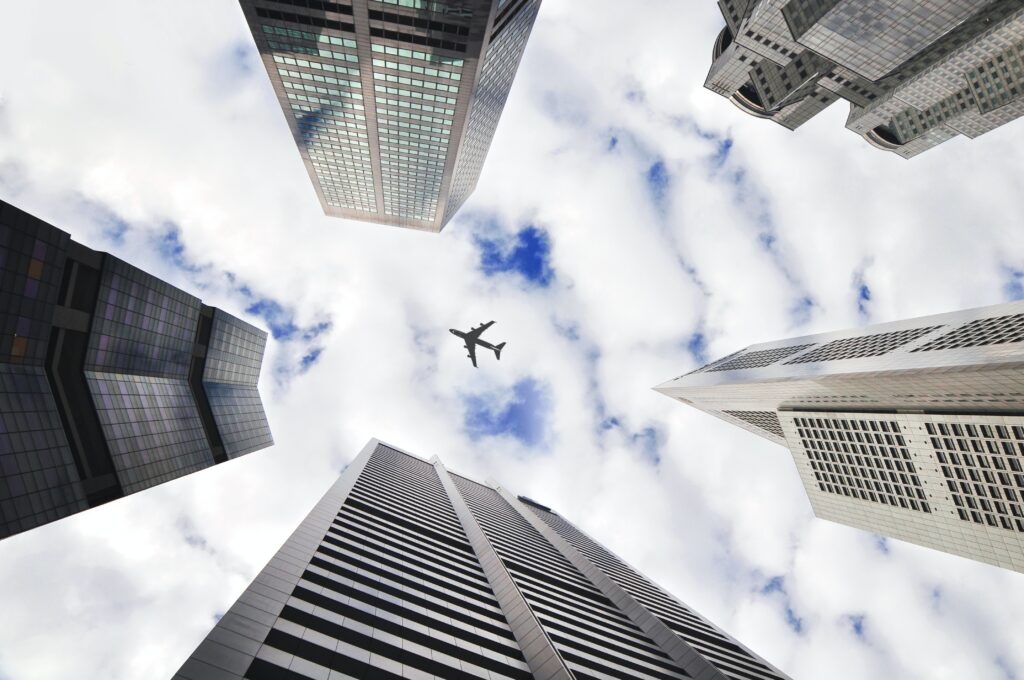The International Civil Aviation Organisation’s General Assembly has further weakened CORSIA, its only carbon pricing tool. It is high time that the EU stopped being hostage to ICAO and industry interests and tackles aviation emissions regionally.

Aviation emissions account for 2-3% of total global carbon emissions and should be tackled and regulated by the UN’s aviation agency, the International Civil Aviation Organisation (ICAO). The agency’s main, though inadequate, tool for doing so is its global Carbon Offsetting and Reduction Scheme for International Aviation (CORSIA).
CORSIA requires airlines to offset emissions on international routes that are above historic emissions quantified as a baseline level. Initially, the baseline was set as the average of 2019-2020 emissions, as the idea was to stabilise net emissions at 2020 levels. However, this meant that, at a time when the aviation sector needs to radically reduce its carbon footprint, the system was created only to cover growth in emissions, which represents a tiny fraction of the total amount of the sector’s emissions.
Moreover, in June 2020, as a result of intensive lobbying by the airline industry, the baseline for the first three years was weakened to cover only 2019 emissions, in order to exclude the drop in flights that occurred during the pandemic.
If the baseline is not reinstated to cover 2019-2020 emissions level, airlines will have fewer offsetting requirements, which will mean even less exposure to the (weak) carbon price signal delivered by CORSIA. Moreover, it is unclear whether five major aviation countries (China, Russia, India, Brazil and Vietnam) will actually join the second Corsia phase in 2027. In summary, almost 10 years after the EU suspended the application of the EU ETS for international flights, the prospects for an effective global carbon price for the aviation sector look dimmer than ever.
Hijacked agenda

This October, the ICAO General Assembly further weakened CORSIA, its main tool to address aviation’s climate impact. The General Assembly decided to change the baseline, again under the pressure of the aviation industry. Once again, we witnessed one major problem plaguing ICAO: governments allow industries to shape the agenda and take decisions based not on the needs of the climate but on the economic interests of large polluters.
The new baseline is set at 85% of the 2019 emissions level. This new baseline would cover only 22% of emissions (or 154 million tonnes of CO2) in 2030, instead of the 31.7% that would have been covered under the former baseline, according to one analysis.
ICAO also reached an agreement on a Long Term Aspirational Goal (LTAG) to reach net zero emissions by 2050. Even though it is merely aspirational, this was touted as an outstanding achievement. The LTAG and CORSIA agreements were negotiated and voted on as a single package. This means that in order to reach a non-binding agreement on an aspirational long-term goal, countries agreed to water down the only system they currently have, imperfect as it is.
CORSIA was already an ineffective system long before undermining the baseline twice. This is because the system relies on cheap, low quality offsets that do not result in any real emissions cuts.
The weaknesses of and uncertainties surrounding CORSIA undermine the schemes effectivenness, makes it imperative that other avenues and options are pursued. The European Union, with an eye to the disappointing ICAO outcome in Montreal, will now have to further improve its own EU Emission Trading System (EU ETS). This is the right moment to act at the regional level and reinstate the EU ETS as it was originally intended for the aviation sector. The EU must expand the scope of its Emission Trading System to cover all long-haul flights departing and arriving in the EU, and it must stop relying on a global system ruled by industry interests.
Author
-

Daniele is Carbon Market Watch's expert on the decarbonisation of aviation and shipping.
View all posts






